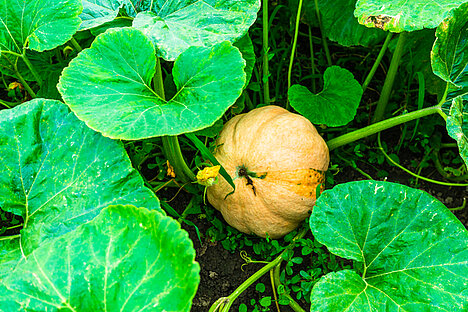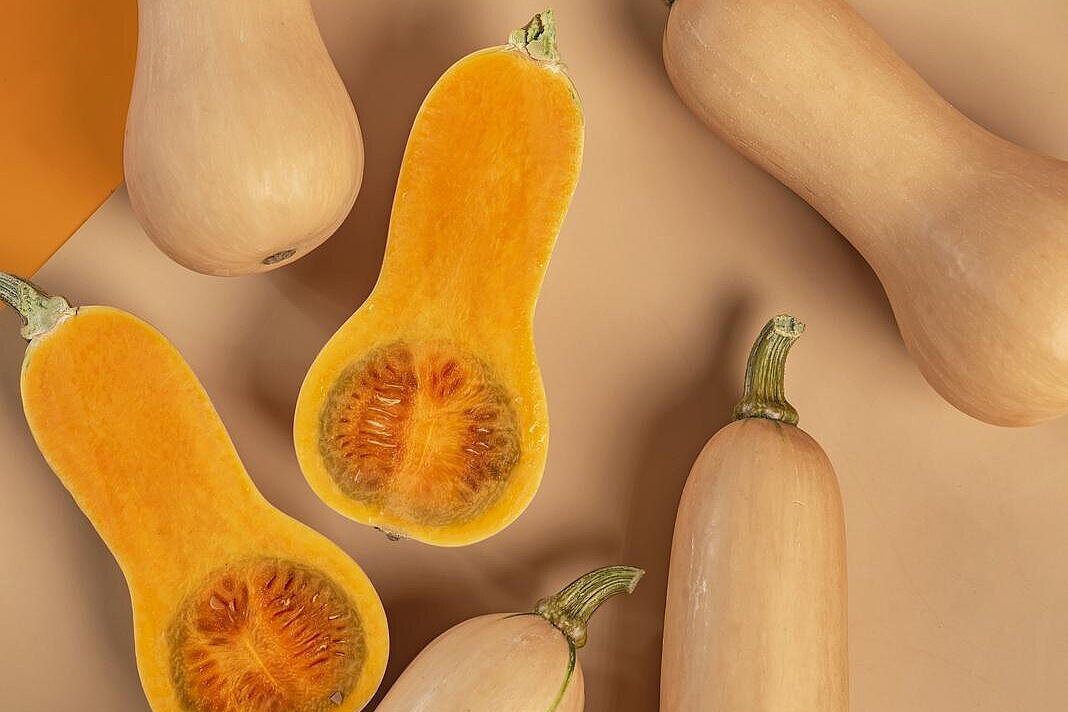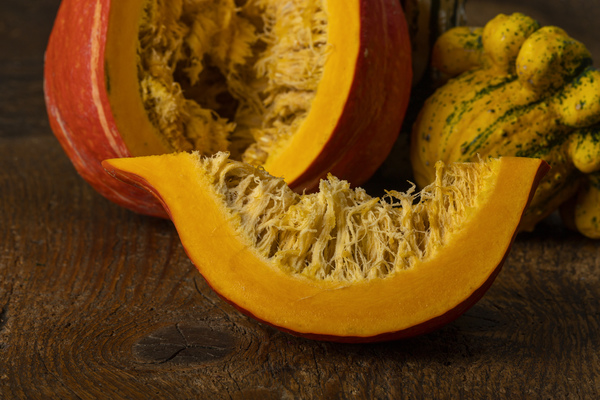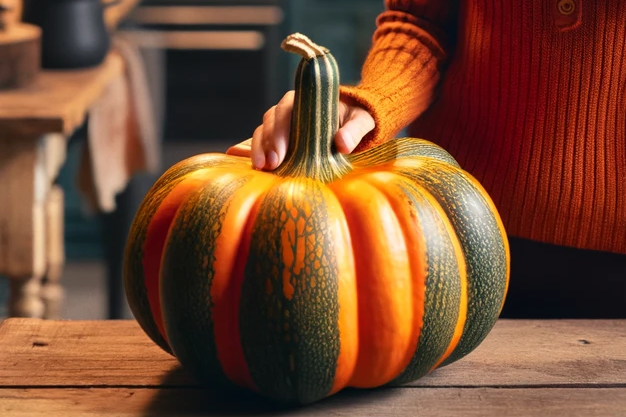Garden pumpkin

What is a garden pumpkin?
The garden pumpkin is a plant species from the pumpkin family. It is one of the oldest cultivated plants in the world and is grown in many regions. The garden pumpkin has a round to oval shape and a green, yellow or orange skin. The flesh is usually orange and contains many seeds. Garden pumpkins can be eaten raw or cooked and taste mild to sweet.
What are the benefits of garden pumpkins for dogs?
The garden pumpkin is not only a healthy food for humans, but also for dogs. It contains many vitamins, minerals and fiber, which strengthen the immune system, promote digestion and can increase the feeling of satiety. Garden pumpkins can therefore help with various ailments, e.g.
- Diarrhea or constipation: Garden pumpkin has a regulating effect on the intestines and can be used for both diarrhea and constipation. In the case of diarrhea, it binds excess fluid in the intestines; in the case of constipation, it softens the stool.
- Obesity: Garden pumpkin has a low calorie content and can be used as a bulking agent to reduce the amount of food without making the dog hungry. It can also be offered as a healthy snack between meals.
- Bladder stones: Garden pumpkin can lower the pH value of the urine and thus prevent or reduce the formation of bladder stones.
- Skin and coat problems : Garden pumpkins contain beta-carotene, which is converted into vitamin A in the body. Vitamin A is important for the health of the skin and coat and can prevent or alleviate skin inflammation, dandruff and hair loss.
What are the disadvantages of garden pumpkin for dogs?
Garden squash is generally well tolerated by dogs, but there are a few points you should be aware of:
- Allergy or intolerance: as with any new food, your dog may be allergic or intolerant to garden squash. Therefore, watch out for possible symptoms such as itching, skin rash, vomiting or diarrhea and stop feeding immediately if you notice anything.
- Overdosing: Too much garden pumpkin can lead to digestive problems or impair the absorption of other nutrients. Therefore, do not feed more than 10 % of the daily amount of food in the form of garden pumpkins and make sure your dog has a balanced diet.
- Peel and seeds: The peel and seeds of garden pumpkins are difficult for dogs to digest and can lead to intestinal obstruction or stomach irritation. Therefore, always remove the skin and seeds before giving your dog garden pumpkin.
How do I prepare pumpkin for my dog?
Garden pumpkin can be fed raw or cooked. If you want to feed it raw, cut it into small pieces or grate it finely. If you want to cook it, you can boil it in water or broth or bake it in the oven. Be careful not to add salt or spices. You can puree the cooked garden pumpkin or cut it into pieces.
The garden pumpkin is a plant species from the pumpkin family that is cultivated in many regions. It has a round to oval shape and a green, yellow or orange skin with orange flesh. Garden pumpkins can be eaten raw or cooked and are a healthy addition to a dog's diet.
The benefits of garden pumpkin for dogs are its many vitamins, minerals and fiber, which can boost the immune system, aid digestion and increase satiety. It can help with diarrhea, constipation, obesity, bladder stones, skin and coat problems.
Disadvantages are possible allergic reactions or intolerances, an overdose of garden pumpkin, which can lead to digestive problems, and the need to remove the peel and seeds as they are difficult to digest.
Garden pumpkin can be fed raw or cooked, taking care not to add spices or salt. Peel and seeds should be removed for dogs as they are difficult to digest. The amount should be limited to a maximum of 10% of the daily amount of food to ensure a balanced diet.
If you notice any signs of hypersensitivity or poisoning in your dog, you should see your vet immediately. We are not a substitute for a vet, but we try to be as accurate as possible. Every dog reacts differently and we recommend you get a second opinion or consult your vet if in doubt.
Stay healthy and take good care of your four-legged friend!😊
Similar to Garden pumpkin
Butternut squash is a type of winter squash from the pumpkin family. It is yellow-orange and pear-shaped. The flesh is soft and sweet and contains many seeds that need to be removed. Butternut...
Hokkaido is a small, round pumpkin with an orange or green skin. It originates from Japan, where it was named after the northernmost island. Hokkaido has a firm, sweet flesh that is ideal for soups,...
Spaghetti squash is an edible squash and originally comes from America. It has an oval shape and a yellow skin. Its weight can vary between one and five kilograms. Its special feature is its flesh,...
Patisson belongs to the pumpkin family and is characterized by its unique plate or ufo-shaped appearance. It comes in a variety of colors, including white, yellow and green, and has a mild, slightly...



